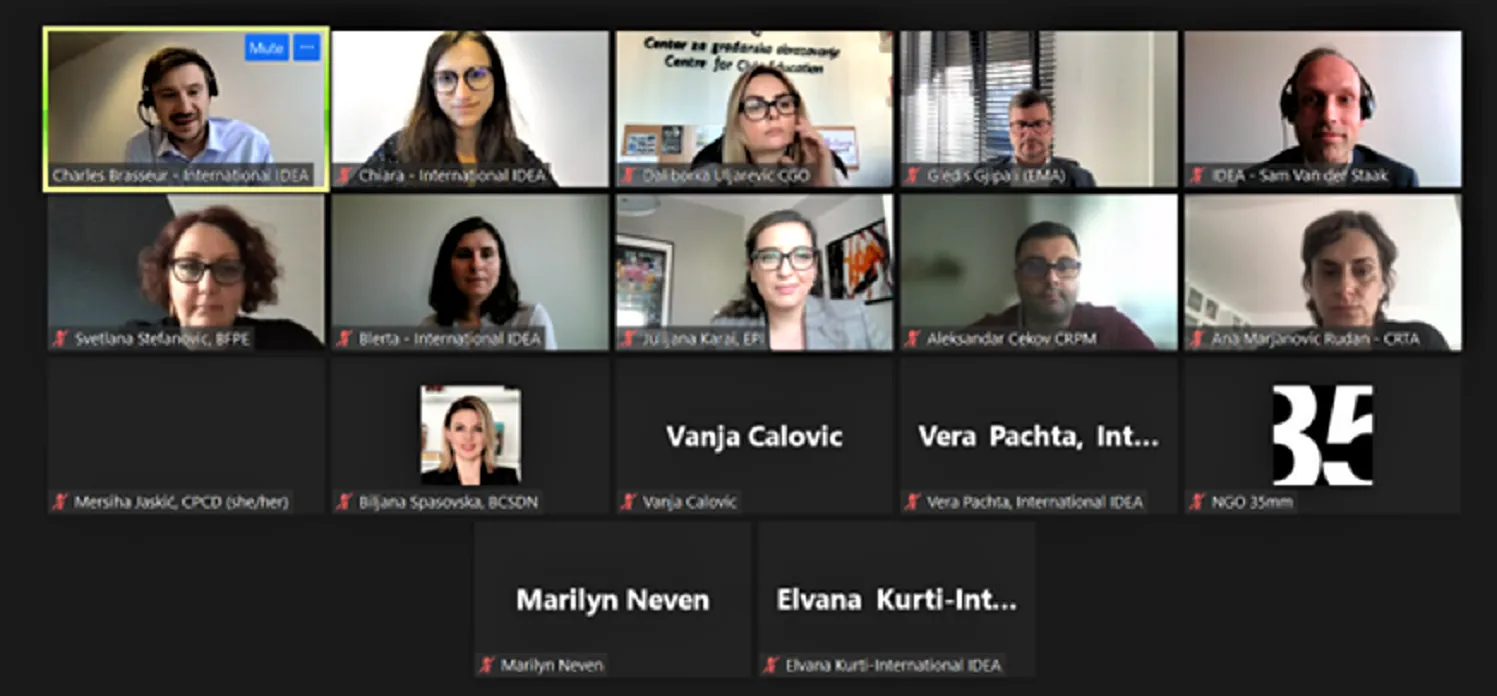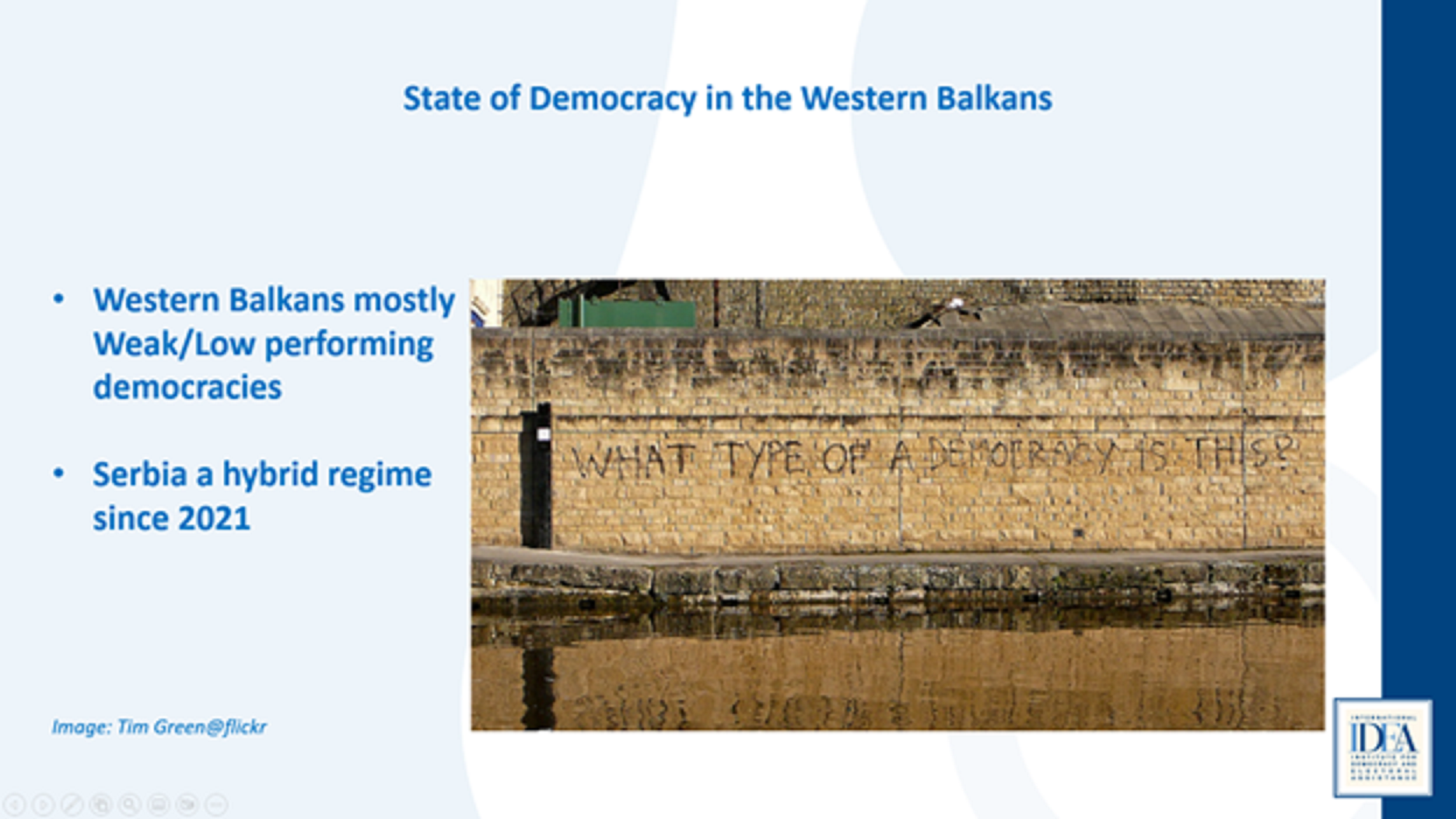Western Balkans´ civil society views on the EU´s democracy action in the region

Despite three decades of international support and an intensified, structured EU accession process in the last 20 years, democracy is not faring significantly better in the region. Montenegro, Serbia and, as of mid-2022, also Albania and North Macedonia are candidates for EU accession with official negotiations opened. Bosnia and Herzegovina was granted status of candidate country under the condition of further reforms in October 2022. Kosovo applied for EU membership at the end of 2022. The new milestones of the enlargement process in the region are connected to the changing geopolitical and strategic context, namely Russia’s war against Ukraine. The EU has been seeking alignment with the partner countries on stability and security aspects, including sanctions against Russian entities and individuals, and the newly established European Political Community.
The Sweden EU Presidency & the Democracy Agenda project organized an online regional consultation n the 20 October 2022. 12 civil society representatives from the 6 Western Balkans countries came together to discuss democracy trends in the region and the relevance and coherence of the EU´s external democracy policy.

The regional dialogue for this project highlighted that the Western Balkan countries face different levels of democratic challenges. Serbia clearly stands apart as a hybrid regime, with a high concentration of power and weak political and media pluralism. The EU seems to be losing popular support, as well as its transformative power, in several countries of the region, particularly with the onset of the Covid-19 pandemic in 2020 and with the disinformation campaigns that followed. In the Western Balkans, the EU approach to democracy is often seen as technical and can be overshadowed by the more influential political engagement of other actors.
Overall, the perception of the EU as a democracy actor varies from one country to another; the high level of support in several countries (e.g. Albania, Montenegro), however, should not be taken for granted, as popular support can quickly crumble with media landscapes that remain fragile. Together with other international partners, the EU should devise a systemic approach to democracy in the region, complementing the focus on important single issues like justice reform, access to justice, or elections. Certain topics also deserve more attention: the fight against corruption, political polarization and concentration of power, disinformation and foreign influence, organized crime and infiltration of political parties, and the curbing of access to information. The deteriorating environment for civil society was identified as a regional trend. CSOs in several countries also signalled a weakening commitment from the EU to cooperate with them on the EU accession agenda.
For more information on The EU´s external democracy action in a new geopolitical reality recommendations report, visit our webpage.



